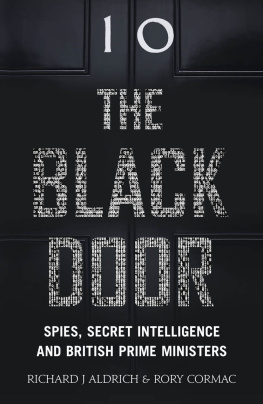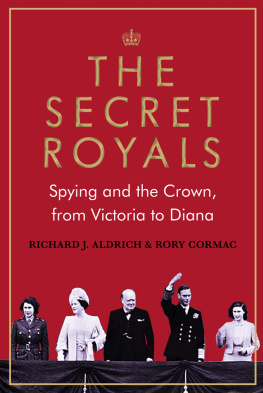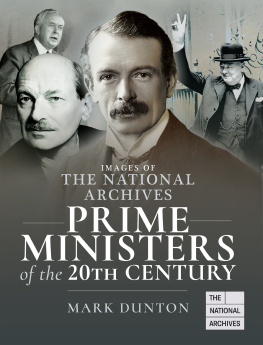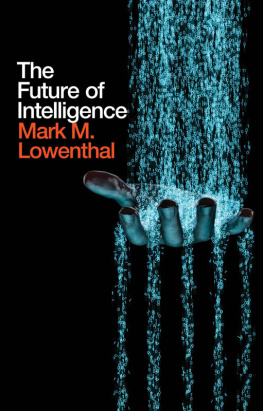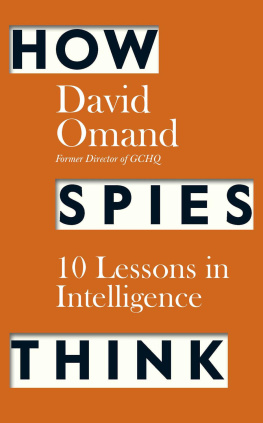William Collins
An imprint of HarperCollinsPublishers
1 London Bridge Street
London SE1 9GF
www.WilliamCollinsBooks.com
First published in Great Britain by William Collins in 2016
Copyright Richard J. Aldrich and Rory Cormac 2016
Richard J. Aldrich and Rory Cormac assert the
moral right to be identified as the authors of this work.
A catalogue record for this book is
available from the British Library.
Cover photograph Dan Kitwood/Getty Images (door)
The author and publishers are committed to respecting the intellectual property rights of others and have made all reasonable efforts to trace the copyright owners of the images reproduced, and to provide appropriate acknowledgement within this book. In the event that any untraceable copyright owners come forward after the publication of this book, the author and publishers will use all reasonable endeavours to rectify the position accordingly.
All rights reserved under International and Pan-American Copyright Conventions. By payment of the required fees, you have been granted the non-exclusive, non-transferable right to access and read the text of this e-book on screen. No part of this text may be reproduced, transmitted, down-loaded, decompiled, reverse engineered, or stored in or introduced into any information storage and retrieval system, in any form or by any means, whether electronic or mechanical, now known or hereinafter invented, without the express written permission of HarperCollins.
Source ISBN: 97800075555444
Ebook Edition April 2016 ISBN: 9780007555451
Version: 2016-04-04
To Joanne and Libby
(two espionage experts)
Contents
C Chief of the British Secret Intelligence Service (SIS)
CCC Churchill College Cambridge
CIA Central Intelligence Agency [American]
CIGS Chief of the Imperial General Staff
CND Campaign for Nucleur Disarmament
Comint Communications intelligence
Comsec Communications security
COS Chiefs of Staff
CPGB Communist Party of Great Britain
CSC Counter Subversion Committee
CX Prefix for a report originating with SIS
DCI Director of Central Intelligence, the head of the CIA
DIS Defence Intelligence Staff
DMI Director of Military Intelligence
DNI Director of Naval Intelligence
D-Notice Defence Notice to the media covering security issues
DOPC Defence and Overseas Policy Committee
Elint Electronic intelligence
FBI Federal Bureau of Investigation [American]
FCO Foreign and Commonwealth Office
GC&CS Government Code and Cypher School
GCHQ Government Communications Headquarters
GOC General Officer Commanding
GRU Soviet Military Intelligence
IRD Information Research Department of the Foreign Office
ISC Intelligence and Security Committee
ISI Inter-Services Intelligence [Pakistan]
ISP Internet Service Provider
JAC Joint Action Committee
JIC Joint Intelligence Committee
JTAC Joint Terrorism Analysis Centre
LHCMA Liddell Hart Centre for Military Archives
MI5 Security service
MI6 Secret Intelligence Service (also SIS)
MIT Turkish Intelligence Service
MoD Ministry of Defence
NATO North Atlantic Treaty Organisation
NSA National Security Agency [American]
NSC National Security Council [American]
NUM National Union of Mineworkers
OSS Office of Strategic Services [American]
PKI Indonesian Communist Party
PLO Palestine Liberation Organisation
PSIS Permanent Secretaries Committee on the Intelligence Services
PUSC Permanent Under-Secretarys Committee of the Foreign Office
PUSD Permanent Under-Secretarys Department
PV Positive vetting
RAW Research and Analysis Wing [Indian]
RUC Royal Ulster Constabulary
SAS Special Air Service
SAVAK Iranian Security Service
SBS Special Boat Service
Sigint Signals intelligence
SIS Secret Intelligence Service (also MI6)
SOE Special Operations Executive
TASS Soviet Press Agency
TUC Trades Union Congress
Ultra British classification for signals intelligence
UKUSA UKUSA signals intelligence agreements 1948
WMD Weapons of Mass Destruction
This is my own true spy story
Winston Churchill
On Saturday, 6 September 1941, Winston Churchill stood on a pile of bricks outside the newly built Bletchley Park. Here, in the Buckinghamshire countryside, the mysteries of the German Enigma encryption machine were being patiently unravelled. Each day the codebreakers product was fed to a prime minister in Downing Street who was beside himself with anticipation. Now, with some emotion, Churchill expressed his profound gratitude and explained to the codebreakers how they had already transformed decision-making at the highest levels, and with it the course of the Second World War. A decade later and now approaching his eightieth year Churchill was back in Downing Street. His keen interest in intelligence had not diminished. In 1952, top-secret spy flights took pictures over Moscow at the express instruction of the prime minister. Over Minsk and Lvov, his airborne intelligence emissaries were greeted by a formidable wall of Soviet anti-aircraft fire.
Churchill also relished covert action. In 1953, he positively purred with enthusiasm over a joint CIAMI6 plot that had overthrown the government of Iran. This underlines the way in which intelligence was not just a secret window on the world for Britains leaders, but also a discreet means of manipulating it. In 1956 Churchills successor, a furious Anthony Eden, neurotic and plagued by ill-health, barked into a telephone that he wanted Egyptian President Nasser destroyed by MI6. Harold Macmillans government drew up what he called a formidable plan for Syria which involved assassinating several leaders. Alec Douglas-Home added Indonesias President Sukarno to the list of foreign leaders that prime ministers wished to see toppled using Britains intelligence agencies. However, when Harold Wilson asked for the liquidation of the Ugandan dictator Idi Amin, officials responded with horror, and refused to investigate the options. When secret intelligence took extreme risks, it was usually at the direction of Downing Street.
Harold Wilson evoked the dark side of intelligence. He was convinced that plotters within MI5, MI6 and especially renegade generals in the Ministry of Defence were out to undermine his government. Notably terrified of the South African secret service, known as BOSS, he chose to develop close personal relations with the Israeli secret service Mossad instead. Speaking with American officials who were inquiring into illegal activities by the CIA in the wake of Watergate, he agreed with them that the CIA failed to tell British authorities everything it did in London. Yet he remained fascinated by the secret world, and valued the intelligence machinery in Downing Street, engaging in academic debate with his intelligence analysts on points of detail like the Oxford junior research fellow he once was.
Intelligence imperilled more than one British prime minister. Within weeks of her arrival at Downing Street, Margaret Thatcher insisted on sitting in with the Joint Intelligence Committee to better understand how intelligence was prepared for those at the top. Only three years later, a major intelligence failure by the same mechanism over the Falkland Islands almost ended her government. John Major found himself confronted by the Arms to Iraq affair, in which ministers had sought to cover up the control of arms export companies by MI5 and MI6. The subsequent inquiry by Lord Scott revealed only part of the murky tale, and brought Majors government close to defeat in the House of Commons. Tony Blairs era was defined by vicious public arguments over intelligence. Despite his successful use of secret service during the creation of the Good Friday Agreement in Northern Ireland, it was accusations of the misuse of intelligence over Iraq that would leave his reputation in tatters. His bold decision to use intelligence publicly to justify the war on Iraq quickly backfired, and by 2005 the missing WMD fiasco threatened to end his government prematurely. Blairs administration also left a toxic legacy of allegations about complicity in torture with which Gordon Brown and David Cameron have both struggled. Most recently, the deluge of secrets revealed by NSA contractor Edward Snowden has reshaped relations between David Cameron, Barack Obama and other world leaders including Angela Merkel. In an era when secret services are increasingly kept in check by whistleblowers and their remarkable revelations, British prime ministers live in constant fear of intelligence blowback.

